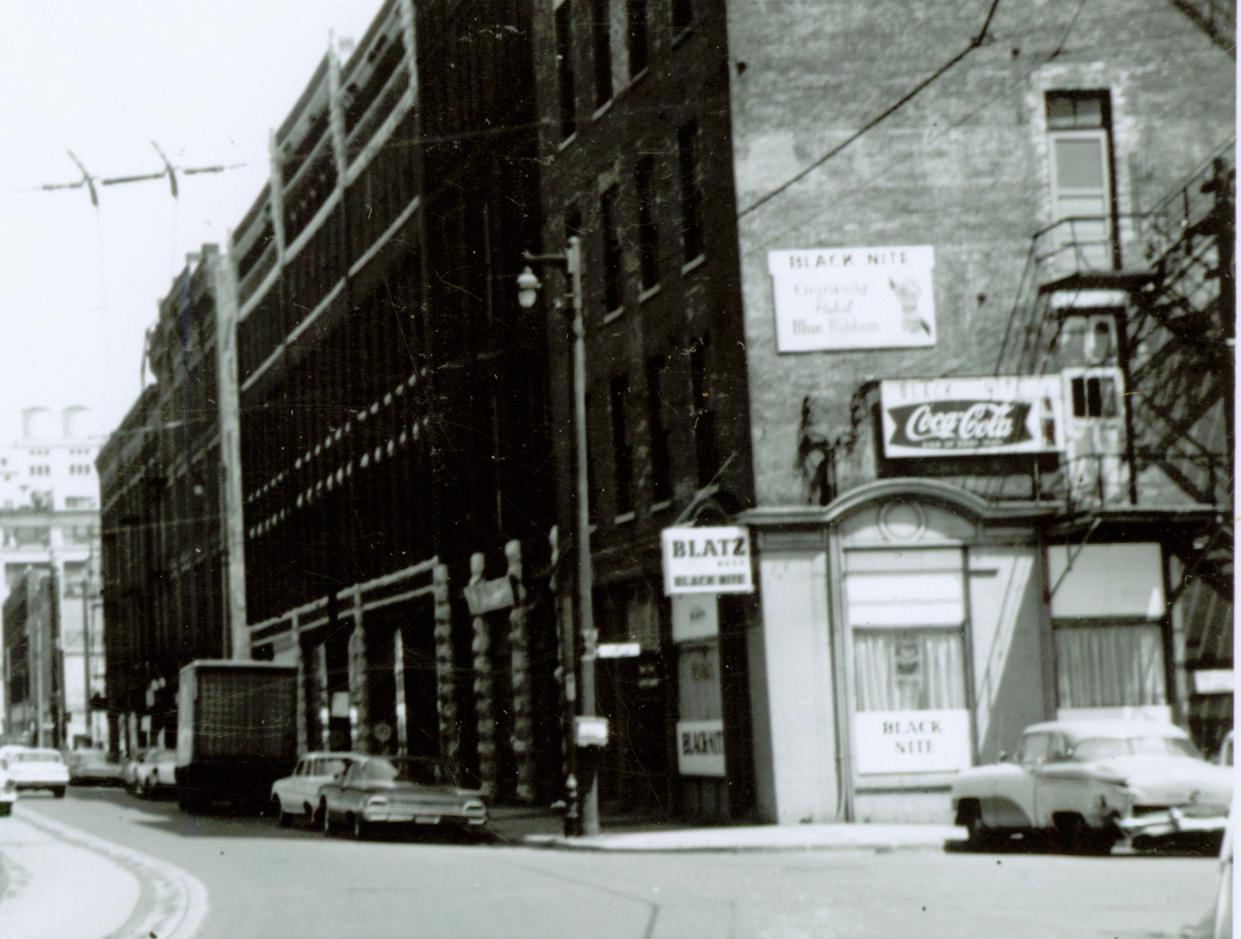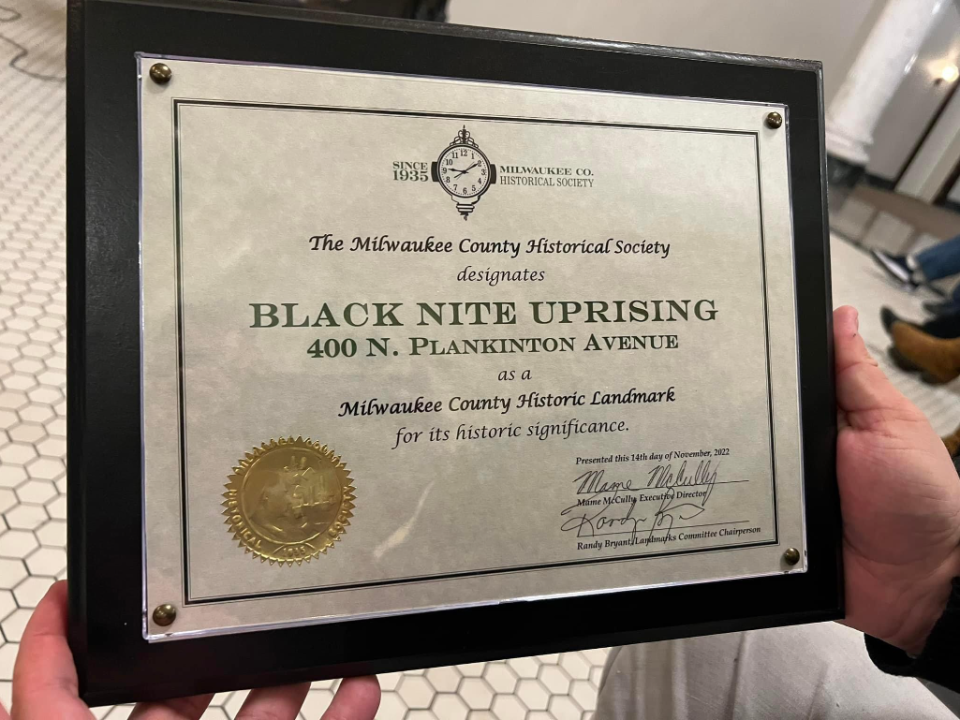Black Nite Uprising officially designated a Milwaukee County landmark; now a physical marker along the Riverwalk is in the works

The Black Nite tavern, home to Wisconsin's first LGBTQ uprising and the site of a proposed taproom and distillery, officially received a Milwaukee County landmark designation this week. Now local LGBTQ leaders have formed a committee to design, develop and dedicate a physical landmark at the site of the old tavern, 400 N. Plankinton Ave.
At an October event, the Milwaukee County Historical Society Landmarks Committee announced that the Black Nite would receive landmark designation. But, at the time, committee chairman Randy Bryant said that there might be a problem getting a physical landmark because someone would need to "grant the land."

According to research from the Wisconsin LGBTQ History Project and historian Michail Takach:
The Black Nite Uprising happened on Aug. 5, 1961, when four servicemen went to the bar, but instead of signing a log and showing identification, the men fought the bouncer.
Josie Carter, a Black trans woman, forced the men away from the establishment. But, prior to leaving, the men vowed to return later that night to "clean up the Black Nite."
Carter then rallied the local LGBTQ community to come defend the Black Nite and when the men returned with friends they were met by more than 70 members of the LGBTQ community.
A brawl ensued, resulting in a number of arrests and hospitalizations.
The Milwaukee Journal wrote that nearly a dozen men were being sought by police after an "invasion of the Black Nite."
The event became the first LGBTQ uprising in Wisconsin history and happened roughly eight years prior to New York's Stonewall riots in 1969.
The bar was torn down in 1966 to make room for the freeway. The lot has been vacant for more than 55 years.
But, recently, Mequon-based Foxtown Brewing announced it has a plan in place to build a taproom, distillery and restaurant at the location. A parcel of the land is city-owned, at 406 N. Plankinton Ave., and that would be turned into a portion of Riverwalk.
"That parcel is proposed to be used for a new Riverwalk connection, as part of the Foxtown Landing development proposal," said Department of City Development spokesperson Jonathan Fera.

The city's Redevelopment Authority meets Thursday, when the board "will consider this land sale for the small parcel at 406 N. Plankinton for the overall development," Fera said.
The Riverwalk portion would need to be approved by the City Plan Commission.
When Brice Smith, project director for "lgbt milWALKee," heard that getting a physical marker for the county landmark wasn't automatic, he wanted to gather a team and form a committee of local LGBTQ leaders.

The newly formed committee includes elected officials — Ald. JoCasta Zamarripa and Milwaukee County Supervisor Peter Burgelis.
The committee members thought they should see their options for acquiring the land, but then Foxtown Landing beat them to the punch, announcing its plans on Nov. 2. According to Smith, developers with Foxtown Landing are in support of a physical landmark for the Black Nite within this newly formed portion of Riverwalk.
Developers with Foxtown Landing were not able to be reached before publication.
Fera said the city will meet "in the days ahead" about its role in placing a physical marker on the Riverwalk, adding the city is in the "very early stages" of the process.
"(Department of City Development) is open to this idea and is looking forward to further conversations with LGBTQ+ community members and the development team on this topic," Fera said.
Smith's committee will meet in two weeks to elect a chair and discuss fundraising and design for a proposed physical landmark. The group has received the support of the Downtown and Third Ward business improvement districts.
“We are proud of the history of our neighborhood and support this opportunity to memorialize the Black Nite tavern as a County Landmark and will continue to work with the appropriate parties for the placement of a physical marker," said Paul Schwartz, executive director of the Third Ward improvement district.
Correction, Dec. 2: This story was updated to properly cite research surrounding the Black Nite Uprising.
Contact Drake Bentley at (414) 391-5647 or DBentley1@gannett.com. Follow him on Twitter at @DrakeBentleyMJS.
Our subscribers make this reporting possible. Please consider supporting local journalism by subscribing to the Journal Sentinel at jsonline.com/deal.
DOWNLOAD THE APP: Get the latest news, sports and more
This article originally appeared on Milwaukee Journal Sentinel: Black Nite Uprising officially designated a Milwaukee County landmark

